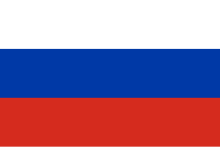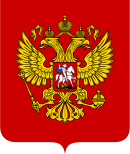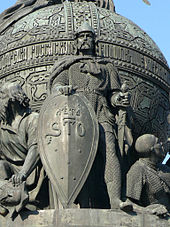National symbols of Russia
Appearance
(Redirected from Symbols of Russia)
This article needs additional citations for verification. (January 2024) |
Modern Russia (i.e. the Russian Federation) has many symbols. Some of these symbols remain from historical periods such as the Tsarist era or Soviet Union, while others have even older origins.
The Russian Federation has several official national symbols including a historical document, a flag, an emblem, a national anthem. The current design of the national flag is the same as the Russian Empire and was officially adopted again after the dissolution of the Soviet Union.
Emblems and symbols
[edit]Soviet era
[edit]References
[edit]- ^ "National symbols of the Russian Federation". www.gov.ru. Retrieved 2023-12-28.
- ^ please notice the double headed eagle was literally espoused by Ivan III marrying Sophia Palealog in the XVth century.
External links
[edit] Media related to Symbols of Russia at Wikimedia Commons
Media related to Symbols of Russia at Wikimedia Commons



















